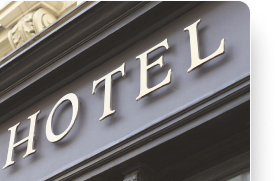In today’s fast-paced and competitive hospitality market, managing multiple distribution channels is critical for increasing a hotel’s visibility and boosting occupancy rates. A well-implemented channel manager can streamline these efforts, ensuring that room availability, pricing, and promotions are consistent across all platforms, from online travel agencies (OTAs) to the hotel’s direct booking website. When used effectively, a channel manager becomes an essential tool in a hotel’s revenue management strategy, helping to maximize both occupancy and profitability.
What is a Channel Manager?
A channel manager is a software solution that allows hotels to distribute their room inventory across various online sales channels, such as OTAs, global distribution systems (GDS), and metasearch engines, while keeping inventory synchronized in real-time. This synchronization ensures that room availability and pricing remain consistent across all platforms, eliminating the risk of overbooking or double-booking.
Seekda’s Channel Manager offers advanced integration with booking engines, OTAs, and meta search platforms, providing hoteliers with the ability to manage multiple distribution channels efficiently.
1. Centralizing Your Distribution Channels
One of the core benefits of using a channel manager is the ability to centralize your distribution strategy. Instead of logging into multiple OTAs and platforms to update pricing or availability manually, the channel manager automatically pushes updates across all channels in real-time.

Best Practices for Centralizing Distribution:
- Integrate All Major Channels: Ensure your hotel is visible on high-traffic OTAs (e.g., Booking.com, Expedia) as well as metasearch engines (e.g., Google Hotel Ads, Trivago) and your direct website.
- Maintain Consistency: Keep pricing, room descriptions, and promotions consistent across all platforms to avoid confusion and build guest trust.
- Avoid Overbooking: By synchronizing your inventory across all channels, a channel manager helps prevent overbooking scenarios that could lead to guest dissatisfaction or revenue loss.
2. Tailor Promotions for Specific Channels
Different channels may attract different types of guests. For example, guests booking through a direct hotel website may be more loyal or price-sensitive, while those on OTAs might prioritize deals. Tailoring promotions based on the channel and target audience can improve conversion rates and attract a broader range of guests.
Best Practices for Channel-Specific Promotions:
- Direct Booking Incentives: Offer exclusive perks like free breakfast, late checkout, or discounted rates for guests who book directly through your hotel website.
- OTA Promotions: Use OTAs to offer early-bird discounts or limited-time deals to drive higher booking volumes during low-occupancy periods.
- Targeted Upselling: A channel manager allows for tailored upsell opportunities during and after the booking process, improving revenue per guest while providing a more personalized experience.
3. Leverage Reporting and Analytics for Better Decision-Making
Data-driven insights are critical for improving occupancy and profitability. A channel manager provides detailed reports on performance, booking trends, and channel profitability, helping hoteliers make informed decisions.
Best Practices for Leveraging Data:
- Track Key Performance Indicators (KPIs): Monitor important metrics such as occupancy rate, average daily rate (ADR), and RevPAR to measure the success of your pricing and distribution strategies.
- Identify High-Performing Channels: Use reporting tools to identify which channels generate the most bookings and revenue, and adjust your marketing spend accordingly.
- Optimize Channel Mix: Based on performance data, consider focusing more on high-performing channels and scaling back on low-conversion platforms.

4. Ensure Seamless Integration with PMS and Booking Engines
For maximum efficiency, your channel manager should integrate seamlessly with your property management system (PMS) and booking engine. This ensures real-time updates to room availability and pricing, reducing manual errors and improving the overall guest experience.
Best Practices for Seamless Integration:
- Automate Inventory Updates: Ensure your channel manager is automatically pulling inventory from your PMS to keep all platforms in sync and reduce the risk of overbooking.
- Enhance Guest Experience: Use real-time data from the PMS to offer tailored experiences, such as room preferences or special requests, improving overall guest satisfaction.
- Reduce Manual Errors: By automating the distribution process, you eliminate the risk of human error, ensuring consistent availability and pricing.
5. Maintain Rate Parity Across All Channels
Rate parity, the practice of maintaining consistent pricing across all distribution channels, is crucial to building guest trust and avoiding complications with OTAs. While hotels can offer direct booking perks, the base room rate should remain consistent.
Best Practices for Maintaining Rate Parity:
- Monitor OTA Agreements: Many OTAs require hotels to maintain rate parity, so ensure your pricing strategy complies with these agreements.
- Offer Value-Added Perks for Direct Bookings: Instead of lowering prices on your direct website, offer added value such as flexible cancellation policies or complimentary services to entice guests to book directly.
- Use Rate Parity Tools: Many channel managers provide built-in tools for monitoring rate parity across platforms, ensuring consistency and avoiding potential conflicts with OTAs.
Conclusion: Using a Channel Manager to Maximize Occupancy
An effective channel manager is more than just a tool for distributing room inventory—it’s a critical component of a hotel’s revenue management strategy. By centralizing distribution, optimizing pricing, leveraging data, and maintaining rate parity, hotels can maximize occupancy and boost revenue while delivering a seamless booking experience.
With Seekda’s Channel Manager, hoteliers can efficiently manage their distribution channels, optimize rates, and improve overall guest satisfaction. From increasing visibility on OTAs to offering exclusive direct booking incentives, Seekda empowers hotels to take full control of their revenue strategies.



















